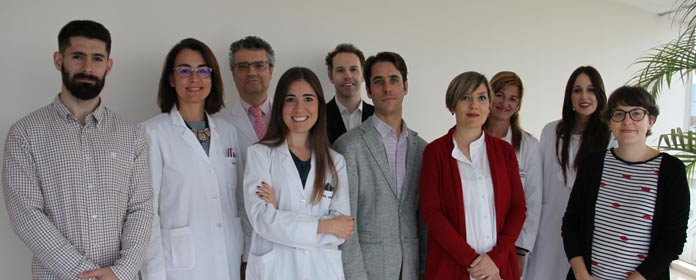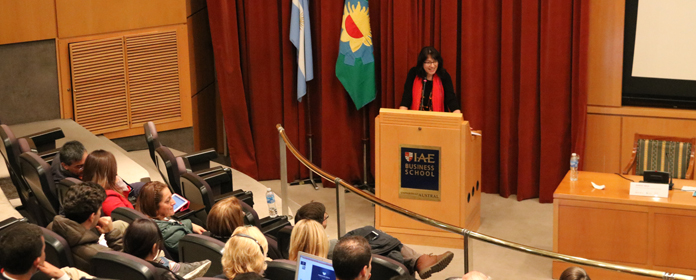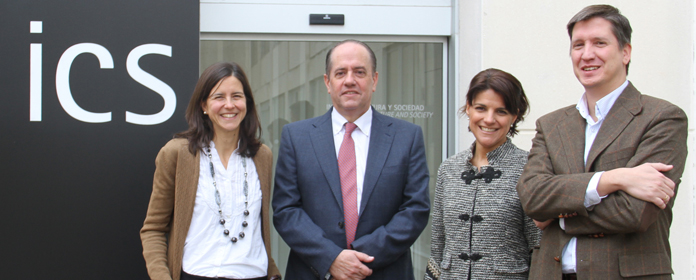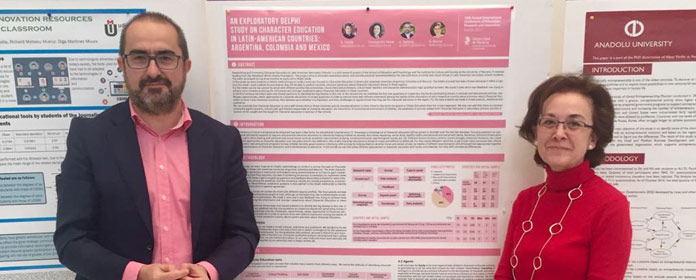promote Education character development in secondary school, an investment in the future for Latin America
25 experts participate in a workshop at the Universidad Panamericana (Campus Mexico), organized by the Universidad Panamericana.
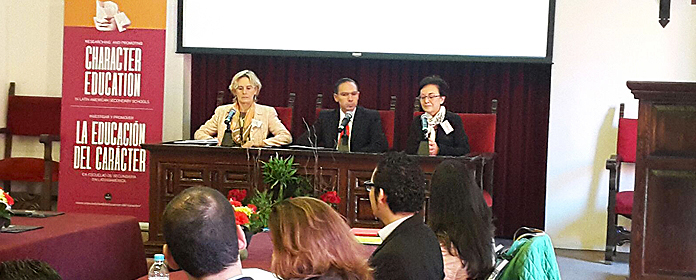
25 academics, professionals from educational institutions and public policy makers from Mexico, Colombia and Argentina have debated at the Universidad Panamericana (Campus Mexico) on the Education of character in secondary schools in Latin America.
The activity has been organized by the project 'Investigate and promote the Education of character in secondary schools in Latin America', of the School of Education and Psychology and the Institute for Culture and Society of the University of Navarra (Spain) and funded by the Templeton World Charity Foundation.
The first discussion paper was position by Concepción Naval, dean of the School of Education and Psychology at the University of Navarra and principal investigator of the project. In her presentation she gave an overview of the initiative, which aims to achieve a better understanding of the training of positive character traits -particularly social and moral virtues- and to analyze how they can be promoted in secondary schools in Mexico, Argentina and Colombia. The results of the project are expected to have an impact on students, faculty, teacher trainers, researchers in the field of Education, policy makers and parents.
Different cultural and linguistic contextsNext, Daniel Moulin, researcher of project and Institute for Culture and Society at the University of Navarra discussed some critical questions about comparative character Education . "Little attention has been paid to considering how character Education programs can be promoted in different contexts," he noted. Dr. Moulin has called for delving deeper into the concept of identity, as it "provides a useful tool with which to investigate, critically analyze, and prepare Education character programs in different cultural and linguistic contexts."
Universidad Panamericana professor Monica Meza has addressed the 'Challenges and horizons for the Education of character in Mexico'. "The need for the Education to respond to the demands of the current environment makes it necessary for the training civics and ethics to be more than instructive, formative, since the current scenario requires educating Mexicans with a strong national identity, supportive and respectful of each other and with those of other nationalities," she emphasized.
Likewise, Dr. Meza emphasized that "there is a lot of potential in the Mexican youth, Mexico will have in the next fifty years, as never before in its history, a force that cannot be wasted. But it will only be a real force if it channels from now on those impetuses through a training of character in a fully human sense".
Mariana Zúñiga, from the Nationalhigh school for the assessment of the Education (INEE), has made a presentation on the 'Vision, legislation and internship educational in Mexico'. In her intervention she showed the advances in the exploration of the interpersonal skills of Mexican students in the framework of the National Plan for the assessment of Learning (Planea), coordinated by INEE. The study involved a sample of 104,204 students in sixth grade and 144,517 in third grade of secondary school.
"In the results of sixth grade students, it was found that there are significant differences by subject of school in the scales of Solidarity and Respect, in favor of private schools, while in Conflict Management and Well-being and partnership community schools obtained particularly favorable results," expressed Mtra. Zúñiga. "A high level of marginalization, not attend to preschool and the child work - she continued - have a considerable negative impact on the Solidarity and Respect scales, while a higher frequency of reading and parental support have positive effects on the results of all scales".
Building a fairer societyposition The last sessions of the first day were led by Mercedes Oraisón, from the Universidad Nacional del Nordeste (Argentina), and Andrea Bustamante, from the University of Missouri - St. Louis (USA), who spoke about the educational vision, legislation and internship in Argentina and Colombia, respectively.
Dr. Oraisón has stated that "Argentina shares with Latin America a social structure characterized by inequality. Large sectors of its population are today in situations of high vulnerability, attendance and subordination. Thinking about the moral Education and for citizenship in this context forces us to consider it as a tool of emancipation and construction of a fairer society".
For his part, Bustamante has stated that "in the last 12 years, Colombia has made significant progress in terms of public policy and legislation on issues related to the Education of character, understood as the set of strategies and approaches aimed at promote the welfare and positive development of students". Among them, he highlighted three important efforts "promoted by national entities for promote healthy school coexistence and the development partner -emotional and citizenship of children and adolescents: the Citizenship Competence Standards, the School Coexistence Law and the Chair of Peace".
"Strategies of work at national and local level that provide training, accompaniment and follow-up to the different actors involved are necessary to achieve a model educational that truly has a positive impact on the lives of children and adolescents. Spaces such as the training programs for future teachers in Normal Schools and Schools of Education are especially important if we want to achieve long-term changes deadline", he concluded.

